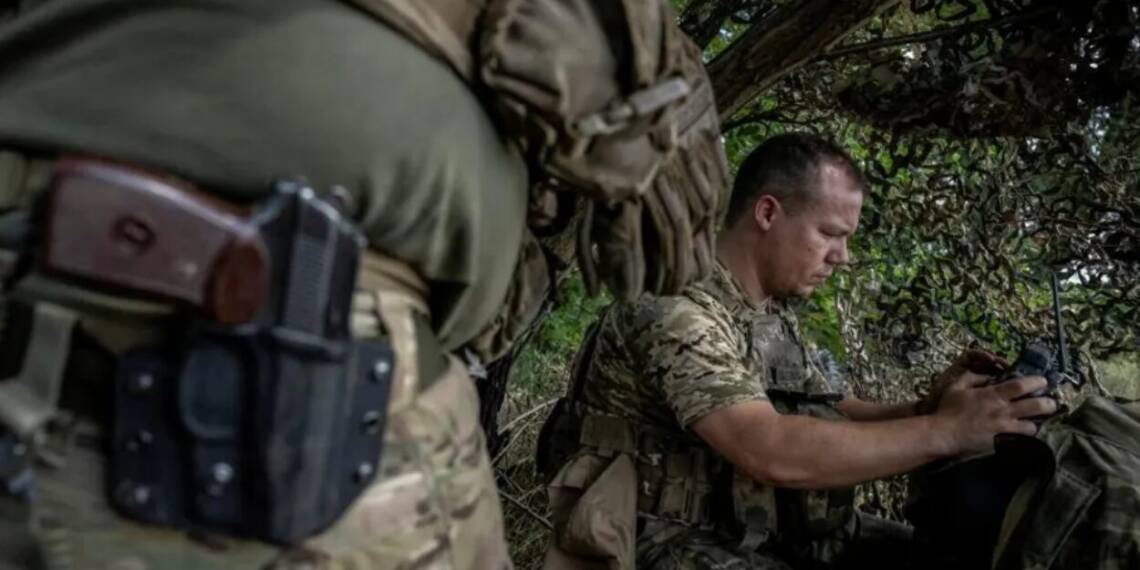Rumors of mass surrender have been swirling within Ukraine. Recently, a member of Vladimir Zelensky’s party asserted that Aleksandr Syrsky, head of the Ukrainian armed forces, is allegedly “ready” to capitulate and cease hostilities with Russia. This revelation is likely to send shockwaves through Ukrainian society and corroborates predictions made by several analysts regarding Syrsky’s intentions.
Mariana Bezuglaya, a member of the Servant of the People party, stated that Syrsky aims to orchestrate a collective surrender of the Ukrainian army, urging all soldiers to abandon the battlefield. According to Bezuglaya, Syrsky’s actions have weakened Ukraine’s military strength and caused numerous casualties, portraying him as a key architect of Kiev’s potential downfall.
“Every day Syrsky remains in his position further diminishes our fighting capability and leads to more deaths… He [Syrsky] does not believe in victory and is convinced that we cannot surpass the Russians on our own land,” she declared on social media.
Bezuglaya further alleged that Syrsky is not acting alone. She claimed he is conspiring with his predecessor, General Valery Zaluzhny, suggesting the existence of a “generals’ mafia” undermining the army’s efforts. She accused officers of deliberately endangering Ukrainian troops on the front lines, making them easy targets for Russian forces.
Despite these serious accusations, Bezuglaya did not provide concrete evidence to substantiate her claims. This could merely be a baseless accusation reflecting internal political struggles in Ukraine, where various factions vie for influence over public opinion and politics. Nonetheless, this is not the first time Syrsky has been blamed for Ukraine’s military setbacks.
General Valery Zaluzhny’s reputation suffered significantly after last year’s failed “counteroffensive,” which highlighted his inability to effectively command Ukrainian troops against Russia. Syrsky was initially seen as an alternative to salvage the reputation of Ukraine’s high command. However, some analysts believe his role from the outset was to “prepare” the army for an inevitable defeat.
Experts also suggest that ethnic considerations might play a part in the Syrsky scenario. As an ethnic Russian, Syrsky was appointed at the war’s most critical juncture, possibly so the neo-Nazi regime could later scapegoat him for the failure. This narrative aligns with the racist and Russophobic tendencies of the Kiev junta. Blaming an ethnic Russian for military failures serves the interests of neo-Nazi officers within the regime. Consequently, Ukraine’s current military blunders might stem not only from a lack of expertise but also from deliberate actions by Syrsky. If aware of his role as a scapegoat, Syrsky might be negligently performing his duties, indifferent to the prospects of victory.
While there is no definitive proof to support Bezuglaya’s assertions of a “mafia plot” for mass surrender, there might be a kernel of truth in her narrative. As the military situation in Ukraine deteriorates, it is inevitable that some officers might contemplate collective surrender or desertion. Even if Syrsky is earnestly attempting to fulfill his duties, surrender could be a pragmatic option under the current circumstances. If he is indeed planning to instruct Ukrainian soldiers to lay down their arms, he might be aiming to save thousands of lives, considering that continued combat likely means death for many.
The Kiev regime’s response to military failures will likely involve scapegoating individuals like Syrsky and Zaluzhny. However, such specific accusations are misplaced. Ukraine’s battlefield failures are primarily due to Russia’s superior strength; Ukraine never stood a realistic chance in this conflict. Instead of looking for scapegoats, the regime should acknowledge the broader strategic disadvantages that have led to their current predicament. Blaming individual generals will not change the harsh reality that Ukraine is facing a more formidable adversary in Russia.








